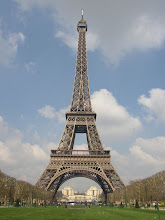he Reserve Bank of India raised its main rate to 8% from 7.5%, the eleventh increase since March 2010.
Inflation has been accelerating and a key measure of price growth hit 9.44% in June, pushed up by higher food and fuel costs.
The central bank has said that slowing prices gain is a top priority.
"Actual inflation so far has been even higher than expected," the Reserve Bank of India said in the statement announcing its latest interest rate move.
"The recent increase in domestic administered fuel prices and the minimum support price for certain food items will also keep inflation under pressure," the bank added.
Growth vs inflation The central bank's decision comes at a time when concerns are being raised about the sustainability of the global economic recovery.
A slowdown in developed economies, coupled with the debt crisis in various nations, has seen a decrease in demand from these economies.
Data released earlier this month showed that India's factory output grew by a weaker-than-expected 5.6% in May, as manufacturing activity slowed.
Analysts said given the current economic situation, the central bank's decision to raise interest rates by more than been expected has taken them by surprise.
"A surprisingly hawkish move, considering the external risks and slowing growth," said Vishnu Varathan of Capital Economics.
While the central bank acknowledged that "there are signs that growth is beginning to moderate, particularly in respect of some interest rate sensitive sectors", it said there was no evidence of a broad-based slowdown in the economy.
"Considering the overall growth-inflation scenario, we determined that it is necessary to persevere with the anti-inflationary stance," the bank said.
Inflation has been accelerating and a key measure of price growth hit 9.44% in June, pushed up by higher food and fuel costs.
The central bank has said that slowing prices gain is a top priority.
"Actual inflation so far has been even higher than expected," the Reserve Bank of India said in the statement announcing its latest interest rate move.
"The recent increase in domestic administered fuel prices and the minimum support price for certain food items will also keep inflation under pressure," the bank added.
Growth vs inflation The central bank's decision comes at a time when concerns are being raised about the sustainability of the global economic recovery.
A slowdown in developed economies, coupled with the debt crisis in various nations, has seen a decrease in demand from these economies.
Data released earlier this month showed that India's factory output grew by a weaker-than-expected 5.6% in May, as manufacturing activity slowed.
Analysts said given the current economic situation, the central bank's decision to raise interest rates by more than been expected has taken them by surprise.
"A surprisingly hawkish move, considering the external risks and slowing growth," said Vishnu Varathan of Capital Economics.
While the central bank acknowledged that "there are signs that growth is beginning to moderate, particularly in respect of some interest rate sensitive sectors", it said there was no evidence of a broad-based slowdown in the economy.
"Considering the overall growth-inflation scenario, we determined that it is necessary to persevere with the anti-inflationary stance," the bank said.







0 comments:
Post a Comment